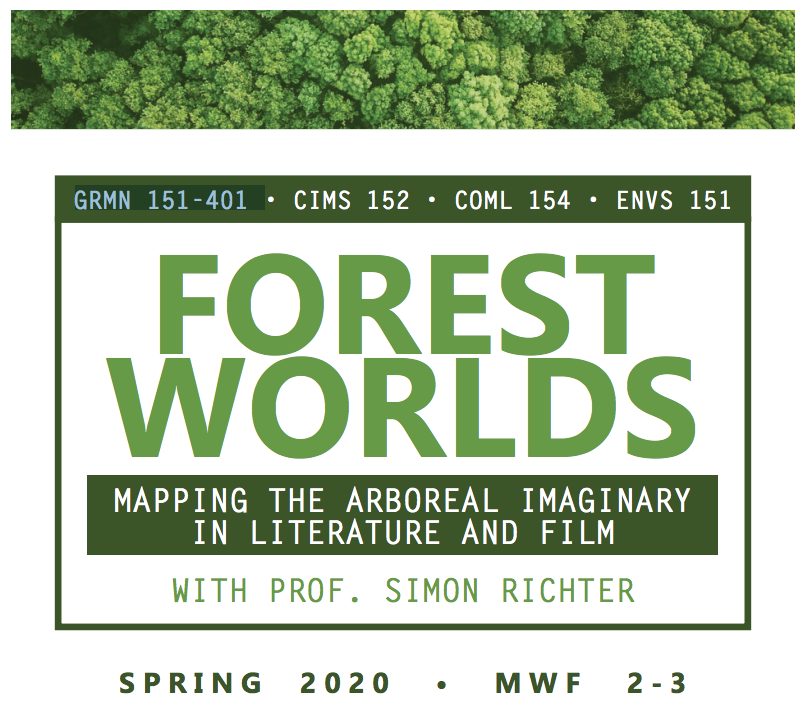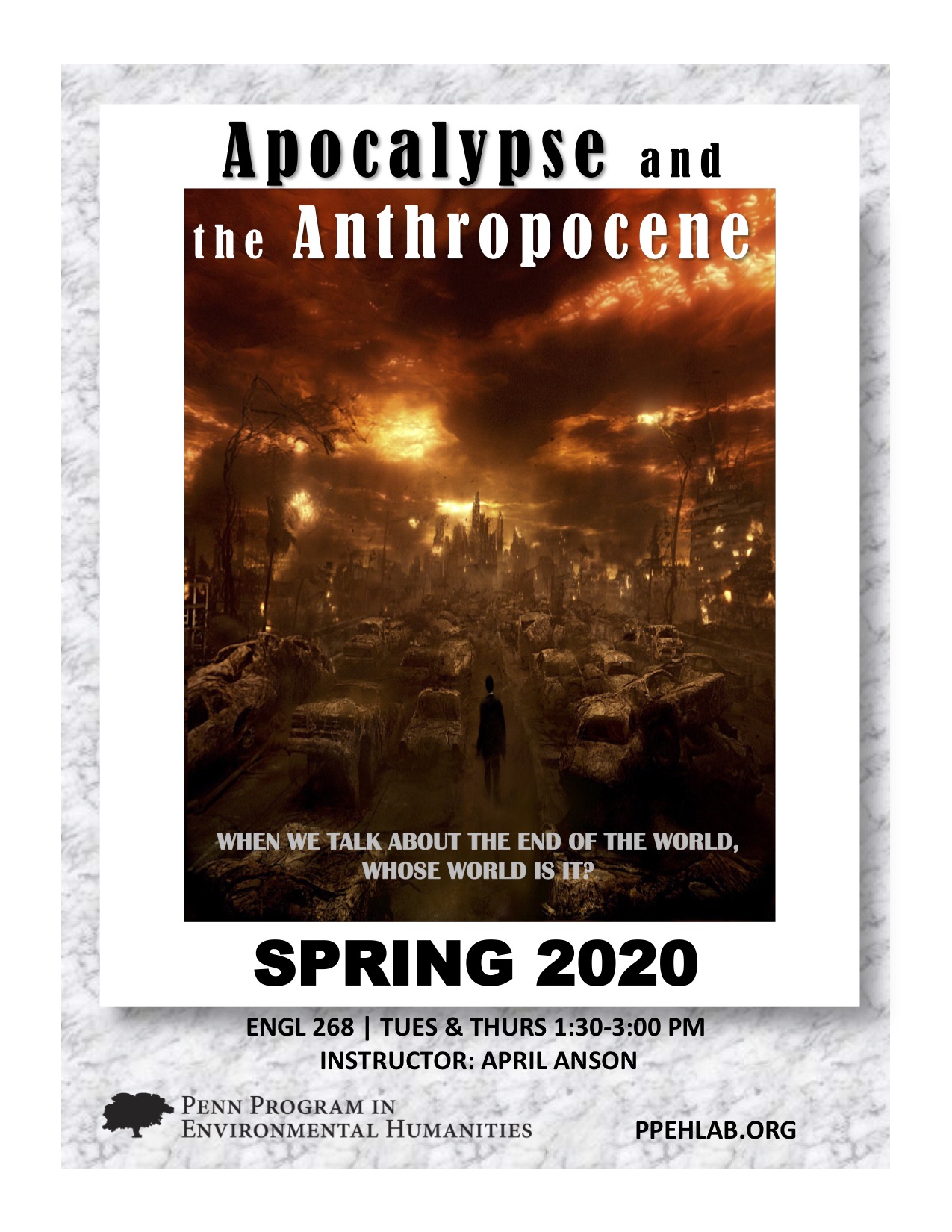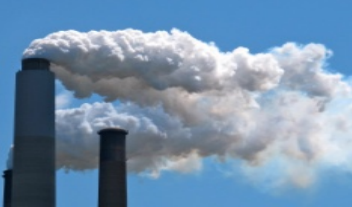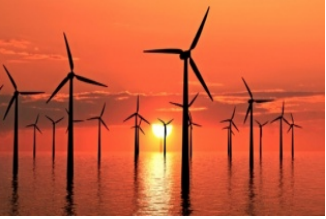Spring 2020
English 158-401
Peter Tarr
Tuesdays, 1:30-4:30PM
This course is a writing workshop in which we contemplate the future of our fragile planet. Each student will engage with key issues facing society in the Anthropocene—the geologic epoch in which humans have come to recognize their own decisive impact on processes such as climate and evolution that until recently have been considered phenomena of "nature." You will tackle issues that are front-page news, in formats that range from the hard-news "science" story to the op-ed and editorial, to the journalistic profile. You will develop and argue fact-based opinion pieces on such questions as: Should we let some endangered species die out? Should genetic engineers proceed with research on the editing of human germline cells? Is it ethical to attempt to geo-engineer the climate, and if so, at what point in the current warming cycle? More generally: can or should we ever seek to impose limits or controls on scientific research and discovery? In addition to a 2,000-word profile of a scientist or tech developer at work in his/her lab, you will write and rewrite three op-eds and a personal essay over the course of the term, and submit revised drafts in a final portfolio at the end of the term.
Spring 2020
GRMN 151-401
Simon Richter
Monday/Wednesday/Friday, 2 - 3 PM

Can the humanities help us think differently about the forest? What happens if we imagine forests as the agents of their own stories? At a time when humans seem unable to curb the destructive practices that place themselves, biodiversity, and forests at risk, literature and film, myth and fairy tale, give us access to a history of the complex inter-relationship between forests and humanity. This course sets a wide range of forest-related literature and film from around the world in conversation with environmental history and current environmental issues.
Spring 2020
LARP 780-001
Sonja Dümpelmann
Monday, 9 AM - 12 PM
 Discussions about the urban forest and tree canopy, carbon sequestration, sustainability, and tree adoption programs are becoming more prevalent by the day. In this course we will look at the evolution of this green heritage in our designed landscapes. The course deals with tree landscapes of a variety of scales and explores the different meanings and functions that these landscapes and their designs have embodied at different moments of time. From a single tree to tree rows, clumps, grids, quincunx, groves, woods, and forests, trees have been dominant features in our landscapes for millennia. Trees have been planted and uprooted to stake out territory and create place, and they have been used to forge and obscure identities. They have provided sustenance and essential building and design materials. They have been the origin and subject of myths and legends, and of war and peace. Trees have inspired artists, musicians, architects, designers, gardeners, and scientists, and they are what many designed landscapes are made of. Questions that will be addressed include the following: what is the relationship between trees and cities, planting and building, forestry and urbanization? What role have trees played in the definition of nature conservation and preservation? How has the preoccupation with trees contributed to scientific advancement? What role have trees played in fostering local, regional and national identities, in political diplomacy, and how have they promoted xenophobia? How have they been used to create different types of tree landscapes like forest gardens, arboreta, nurseries, sacred groves and woodland cemeteries, and how have trees been represented in various media and at different times? Studying trees in time and place offers the opportunity to address these and many other questions and topics that straddle landscape, environmental, forest, and cultural history, and that connect the human with the non-human, the local with the global, as well as micro- and macro histories. The course will include guest lectures, site visits, and seminar discussions that will build upon the course readings. Students will contribute to a weekly course blog and work on a research paper related to the course content that will be presented in class. There are no prerequisites.
Discussions about the urban forest and tree canopy, carbon sequestration, sustainability, and tree adoption programs are becoming more prevalent by the day. In this course we will look at the evolution of this green heritage in our designed landscapes. The course deals with tree landscapes of a variety of scales and explores the different meanings and functions that these landscapes and their designs have embodied at different moments of time. From a single tree to tree rows, clumps, grids, quincunx, groves, woods, and forests, trees have been dominant features in our landscapes for millennia. Trees have been planted and uprooted to stake out territory and create place, and they have been used to forge and obscure identities. They have provided sustenance and essential building and design materials. They have been the origin and subject of myths and legends, and of war and peace. Trees have inspired artists, musicians, architects, designers, gardeners, and scientists, and they are what many designed landscapes are made of. Questions that will be addressed include the following: what is the relationship between trees and cities, planting and building, forestry and urbanization? What role have trees played in the definition of nature conservation and preservation? How has the preoccupation with trees contributed to scientific advancement? What role have trees played in fostering local, regional and national identities, in political diplomacy, and how have they promoted xenophobia? How have they been used to create different types of tree landscapes like forest gardens, arboreta, nurseries, sacred groves and woodland cemeteries, and how have trees been represented in various media and at different times? Studying trees in time and place offers the opportunity to address these and many other questions and topics that straddle landscape, environmental, forest, and cultural history, and that connect the human with the non-human, the local with the global, as well as micro- and macro histories. The course will include guest lectures, site visits, and seminar discussions that will build upon the course readings. Students will contribute to a weekly course blog and work on a research paper related to the course content that will be presented in class. There are no prerequisites.
Spring 2020
ARCH 718
Daniel Barber
Wednesday, 9 AM - 12 PM

Climate change is upon us. This course discusses the history of thinking about climate in architecture. We confront the geographic and epistemic challenges of climate change and other environmental threats, and reconsider the forces seen to condition the development of modern architecture. The course will explore the history of buildings as mechanisms of climate management, and the theoretical and conceptual frameworks that pertain.
As many of the arguments and innovations in the climate discourse were made through visual means, the images produced by architects and others interested in understanding the relationship between “man” and “climate” will be a central arena of exploration. We will treat these images as evidence of material innovations in energy efficient architectural design technologies and also as evidence of new ways of thinking about ecological, political, cultural, and economic relationships.
These narratives, images, and methods – and the broader understanding of environmental systems that emerged since the immediate post-war period – also suggest a complex relationship to the present. Rather than examine instrumental aspects of these methods and their histories, we will explore different historiographic and conceptual means for the archival analysis of climate, technology, and architecture. Recent texts concerned with theories of historical change, of new ideas about the human, and with the cultural anxieties associated with the Anthropocene will be read to this end.
Spring 2020
DSGN 317
Orkan Telhan
Wednesday 2:00 - 5:00 PM
"Cultures of Making (and Unmaking)" is a studio/seminar hybrid that investigates the designers’ responsibilities towards the environment and the climate crisis. The students work with contemporary technologies—sensors, indicators, sequencers, mapping devices— to learn about different ways to sense, image, and construct knowledge about the physical world around us. The course is divided between different strategies of analysis and designwork that show how to act towards pollution, biodiversity loss, and the climate change on individual, communal, and planetary scales. The course involves fieldtrips, design workshops, and interaction with domain experts in environmental sensing and visualization.
Spring 2020
ENGL 268
Tuesday/Thursday, 1:30 - 3:00 PM
In this class we will explore the narrative mode of the apocalypse in the context of the geologic designation of the Anthropocene. We will analyze a diversity of cultural forms to think about questions, reconceptions, and social issues relevant to that epochal concept. Specifically, we will focus primarily on the ways North American literature (especially the novel, but also film, blogs, and video games) attempt to understand the human and non-human relationships in the Anthropocene through stories of apocalypse. We will look to the ways apocalyptic stories can represent and contest the exploitative, extractive, and unequal power relations that the “era of the human” includes, paying special attention to American notions of nature and stewardship as they relate to geologic time and the legacies of genocide, slavery, and capitalism. Our class will investigate the ways works of art attempt to render these complex and perhaps overwhelming concepts comprehensible so that we may envision and enact just futures.

Spring 2020
BEPP/OIDD 263
Arthur van Benthem
Tuesday/Thursday, 12-1:20 PM

Provides students with an economist’s perspective on:
- Energy markets and environmental regulation
- Power markets and energy storage
- Oil and gas pricing and contracts
- Geopolitics and investment risk
- Cap-and-trade and climate policy
- Valuation of the environment
- Renewable energy finance
Spring 2020
BEPP/OIDD 763
Arthur van Benthem
Tuesday/Thursday, 3 - 4:20 PM

Provides students with an economist’s perspective on:
- Energy markets and environmental regulation
- (De)regulation of power markets
- Energy storage
- Oil and gas pricing and contracts
- Geopolitics and investment risk
- Cap-and-trade and climate policy
- Renewable energy finance
Spring 2020
ANTH 539-301
Nikhil Anand
Tuesday, 1:30 - 4:30 PM
As capitalist relations remake the earth through projects of intensified mineral extraction, carbon-based energy consumption and the production of 'waste', in this course we will examine the diverse histories and practices through which nature-society relations have been studied in anthropology and related disciplines. The course will follow a genealogical approach to understand some contemporary theoretical developments in environmental anthropology, including multispecies ethnography, the anthropology of infrastructure, and ontological anthropology. In what ways do these modes of doing anthropology recapitulate or address some of the earlier debates on race, indigeneity, materiality and alterity? How might recent work in the field generate new ways to remake the world and our understanding of it? The class will combine key theoretical texts in cultural ecology, political ecology and science and technology studies together with ethnographies of natureculture to investigate how earth water, earth, air and fire are being remade in the current moment. It borrows from and builds on the "Reading List for a Progressive Environmental Anthropology" by Guarasci, Moore and Vaughn (2018) to rethink and reconstitute what counts as the canon of the field by attending to the contributions of women, people of color, scholars working outside of the United States, and indigenous authors. By examining the entanglements of nature, culture and political economy in the contemporary moment, the course will enable students to situate and construct their dissertation research projects with what is a prolific and compelling literature to imagine and understand our climate changed world.
Spring 2020
ENVS 410-301
Howard Neukrug
Tuesday, 5-8 PM
Introduction to the Course
This course examines the historical relationship between a city and its water supply and the new techniques being used to manage water in its many forms - stormwater runoff, flooding, drinking water supply and conservation, and river and stream enhancement and protection. It builds strongly on the planning, design, implementation, operating and monitoring of "green stormwater infrastructure"(or, GSI). GSI is a term developed by Philadelphia's “Green City, Clean Water” concepts that are currently being tested and implemented in cities across the US and abroad. By re-thinking how we build and manage our cities, using "soft path", "green", "decentralized" water infrastructure systems, we may be able to change the long-term outcome for the livability and viability of our communities as issues of climate change, aging infrastructure and funding take center stage in the 21st century.
The purpose of this course is to prepare the student to manage complex environmental, social and economic issues using science, planning, green design, geographic information systems, community outreach and education. Water is the medium and Philadelphia is the setting and the goal is the creation of a vibrant, sustainable city. This course will involve urban development and city planning, environmental justice and social equity, jobs and economics, civil engineering, environmental science, regulations and policy, urban hydrology, landscape architecture, community outreach and politics. You are not expected to be an expert in these areas when you begin the course, but by the time class is completed, you will be expected to understand the "transdisciplinary" nature and importance of working within groups of experts, politicians and other stakeholders.
Perhaps most importantly, this is an academically-based curriculum service (ABCS) learning approach for using water, science, and politics to create more sustainable and resilient cities. Students will be expected to take knowledge learned in the classroom and apply it through field investigations, working with non-profits, scientific data analysis, educating and/or other means of working closely with stakeholders in the community in an attempt to change the world, or at least a small piece of it.
This course is being taught by Professor of Water Practice Howard Neukrug, PE who formed the city’s Office of Watersheds in 1999 to bring many of these ideas to Philadelphia. Prof. Neukrug will use seminars, lectures, student presentations and a comprehensive community
service project to develop an in-depth understanding of current conditions effecting urban environments and how science and politics interact to influence the development of sustainable cities. It will connect the issues of a post-industrial urban centers with the goals of the Clean Water Act, the Safe Drinking Water Act and the Water Industry.
Our "buried" and remaining urban creeks and rivers and the vast underground infrastructure network will be a central theme upon which we will build a working knowledge of centuries of urban growth and the environmental injustices that have emerged along the way . These will all become key factors in determining how improving our water environment can make a real difference in the lives of Philadelphians and other urban systems such as housing, land use, transportation, recreation, economy, and place in turn, set the trajectory for a sustainable city.
Topics covered in the course include: urban and community planning and design, green infrastructure, landscape architecture, risk management and communication, water quality and protection, resilience to climate change, watershed monitoring and reporting, public outreach and education, implementing change and the dynamic relationship between the watershed, waterfront, and the waterways.
